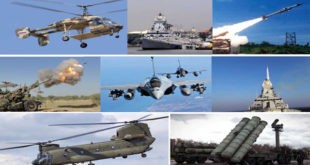Related Articles
Introduction
In an era marked by escalating geopolitical tensions and record-breaking military budgets, the defense industry is undergoing a significant transformation in its talent acquisition efforts. With global defense spending reaching unprecedented levels—$2.4 trillion in 2023—the sector is actively seeking skilled professionals to bolster its capabilities. Amid layoffs in other industries and shrinking federal job opportunities, the defense industry is emerging as a beacon for job seekers looking for stability and growth. This article explores the factors driving the recruitment surge, the challenges the industry faces, and practical strategies for transitioning into defense roles.
Global Military Spending and Its Impact
The catalyst for this hiring frenzy can be traced back to significant geopolitical events, notably Russia’s invasion of Ukraine over two years ago, which has intensified global security concerns. As nations respond by increasing their defense budgets, the United States alone accounted for 37% of global military expenditures in 2023, with China at 12%, Russia at 4.5%, and India at 3.4%. These massive financial commitments underscore the urgency for enhanced military capabilities, prompting defense giants to invest heavily in expanding their workforce. In this climate, defense companies are not only racing to fill thousands of roles—from engineering and cybersecurity to software development and senior management—but are also rethinking traditional hiring models to attract a broader talent pool.
The Rush for Talent in the Defense Industry
In response to soaring defense spending, major defense contractors like Lockheed Martin, Northrop Grumman, and General Dynamics are spearheading aggressive recruitment initiatives. Industry giants such as Lockheed Martin, Northrop Grumman, and General Dynamics are collectively seeking to fill nearly 6,000 positions. Additionally, ten other major firms aim to expand their workforce by approximately 37,000 roles, encompassing apprenticeships, engineering positions, software development, and senior executive roles. This marks the most significant hiring spree since the end of the Cold War.
The aerospace and defense (A&D) sector’s revenue surged to $829 billion in 2023, an 11% increase from the previous year. However, production constraints due to supply chain issues and talent shortages prevented the sector from reaching its full potential. The industry currently supports over 2.2 million jobs across the United States, representing 1.4% of the U.S. employment base.
This surge marks the most significant hiring spree in the defense sector since the end of the Cold War. The increasing demand for sophisticated military technologies has created a competitive market for talent, where the defense industry is striving to outpace the allure of Big Tech and other sectors that have recently experienced widespread job cuts.
Challenges in Talent Acquisition
Despite the vigorous hiring efforts, the defense industry faces several challenges in attracting and retaining the skilled workforce it needs. Competition with the technology sector is fierce, as tech companies often offer more flexible work environments, higher compensation, and rapid innovation cycles that appeal to top talent. Additionally, the defense sector must contend with an aging workforce, with many experienced professionals nearing retirement. This demographic challenge, combined with lengthy and complex security clearance processes, further narrows the available pool of qualified candidates. Moreover, as defense systems evolve, there is an increasing need for expertise in emerging areas like cybersecurity, artificial intelligence, and advanced manufacturing, which not all traditional defense candidates possess.
Strategic Responses to Talent Shortages
To overcome these obstacles, the defense industry is implementing several innovative strategies aimed at attracting and retaining talent. Companies are revamping their recruitment initiatives to reach beyond conventional talent pools by promoting nontraditional career paths and highlighting the unique opportunities within the defense sector. They are actively forging partnerships with academic institutions and technical schools to develop a steady pipeline of skilled professionals. At the same time, efforts to streamline security clearance processes are underway, reducing administrative delays that have historically hampered hiring. Furthermore, the industry is embracing flexible work arrangements and modern digital tools to align more closely with the expectations of a new generation of professionals.
Opportunities for Job Seekers and Career Transition
For individuals considering a career transition, the defense industry presents an attractive alternative amid widespread job cuts in other sectors such as retail, technology, and consumer services. The current hiring spree, driven by surging military expenditures and evolving defense technologies, offers a wealth of opportunities across diverse roles. Whether you have a background in engineering, cybersecurity, software development, or project management, your skills are in high demand. Importantly, many defense roles do not initially require an active security clearance, allowing for a smoother entry into the sector.
The defense industry is actively seeking skilled professionals, offering a beacon of opportunity for job seekers amid widespread job cuts in other sectors. Industries such as retail, technology, services, and consumer products have experienced significant layoffs, reflecting a broader trend of job reductions. Additionally, federal agencies are planning large-scale job cuts, further shrinking government employment opportunities.
Guidance for Job Seekers: Navigating the Transition into the Defense Industry
For individuals considering a career in the defense sector, understanding the industry’s unique requirements is crucial. Unlike many commercial industries, the defense sector often seeks candidates with specialized knowledge and a strong technical background. Familiarity with topics such as cybersecurity, artificial intelligence (AI), advanced manufacturing, and systems engineering is highly valued. Many roles require expertise in secure software development, risk management, and an understanding of complex regulatory environments. While some positions demand security clearances, many entry-level roles allow you to begin building your career without them, provided you are willing to undergo the clearance process as you progress. Consider pursuing relevant certifications or training programs, such as those in cybersecurity (e.g., CISSP, CEH) or systems engineering (e.g., INCOSE certifications), to bolster your qualifications.
Transitioning into the defense sector requires strategic planning and proactive skill development. Job seekers should begin by evaluating how their current expertise aligns with the specialized requirements of the industry. For example, skills in project management, cybersecurity, and systems engineering are highly transferable and in high demand. Understanding your strengths and identifying any gaps in your knowledge is a crucial first step in aligning your career trajectory with the needs of defense organizations.
Networking is equally important. Engaging with professionals in the defense community through platforms like LinkedIn or attending industry conferences can provide valuable insights and open up opportunities. By establishing connections with individuals already working in the field, you can learn about the nuances of the industry and receive guidance on the best strategies for making a successful transition. Additionally, familiarizing yourself with the federal hiring process is essential, as many defense roles require navigating specific requirements such as background checks and security clearances. Being well-versed in these processes not only streamlines your application but also demonstrates your commitment to the rigorous standards of the defense sector.
By proactively aligning your skills, building a robust network, and understanding the unique aspects of the federal hiring process, you can effectively navigate the current employment landscape in the defense industry. This approach will position you to seize the burgeoning opportunities in an industry that is rapidly expanding, even as other sectors experience contraction.
Conclusion
The defense industry’s aggressive recruitment drive amid record-breaking military expenditures is fundamentally reshaping the employment landscape. With nations channeling unprecedented funds into defense capabilities, there is a critical and growing demand for a highly skilled and adaptable workforce. Despite challenges like stiff competition from the tech sector and the complexities of security clearance processes, innovative recruitment practices, streamlined hiring methods, and flexible work arrangements are forging a robust talent pipeline for the future.
For job seekers, particularly those navigating career transitions during times of widespread layoffs in other industries, the defense sector presents a promising avenue for stability and growth. The opportunities available not only promise secure employment but also allow individuals to contribute meaningfully to national and global security. As the defense industry continues to evolve and integrate advanced technologies, its steadfast commitment to innovation and resilience will ensure that it remains a cornerstone of modern security, offering a dynamic and fulfilling career path for those ready to step into this challenging yet rewarding field.
References and Resources also include:
https://www.axios.com/2024/06/21/defense-sector-labor-shortage-militatry-spending
 International Defense Security & Technology Your trusted Source for News, Research and Analysis
International Defense Security & Technology Your trusted Source for News, Research and Analysis


